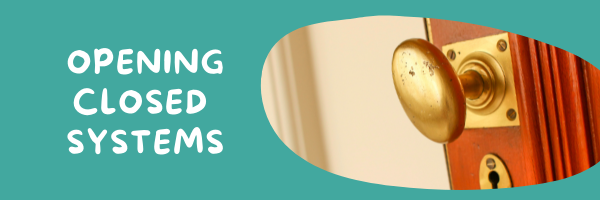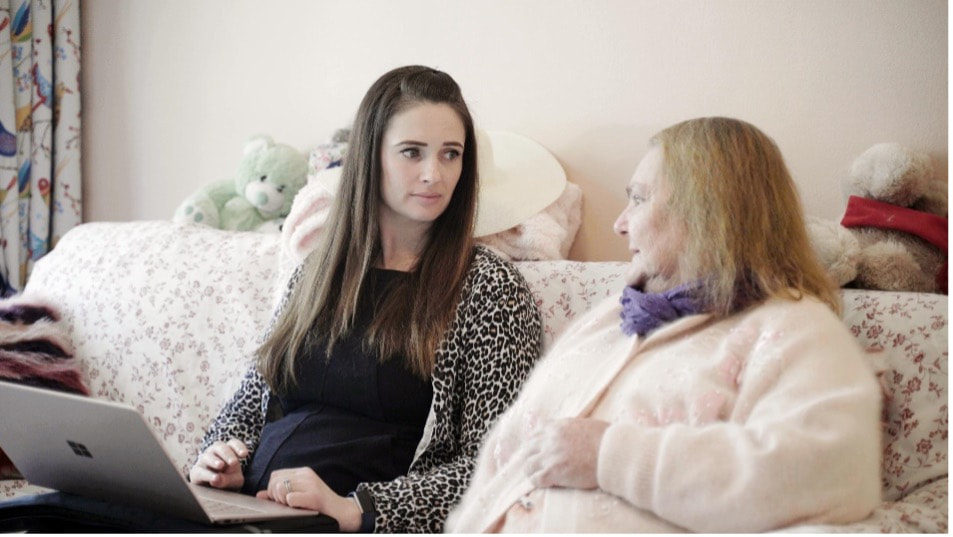|
SIL is about Supported Independent Living, it's the funding people who live in group homes need to have in their NDIS Plan. Not the best choice of names because, let’s just get really clear, meeting individual needs, exercising choice and control in a group home are at best limited and most likely to be completely wrapped up in the needs and choices of the other people in the home (and the needs of service who provides the support). Until recently the group home provider submitted a Roster of Care (RoC) and SIL funding documents to the NDIS and between themselves they worked out how much funding a person got. Although people with disability, their families and us as Coordinators of Support tried to insert ourselves into that conversation, mostly it felt like a secret deal between the NDIS and the provider. We were lucky we got to see the RoC after it was signed off. So, now things are changing, and they are changing fast. Now we have new guidelines, and it seems, under the guise of choice and control, the NDIA is giving ‘control’ to participants while exiting from the previous arrangements they had with the providers. Going forward, with SIL funding, like funding for most other support services, the NDIA will determine what kind and levels of support and funding a person needs based on the evidence they have (might be a previous RoC or might be a new OT assessment, etc).
Now the NDIA determines what is needed and then provides the funding to the participant, who in turn (and together with their Coordinator of Support) negotiates the agreements with the SIL provider … mmh?? Unlike most negotiations, in most situations and locations, it seems to us that there really isn’t much to negotiate, as there isn’t much choice and control a person has who is dependent on the provider for accommodation and day to day support. And it also important l to remember, that the people who live together in the house rarely, if ever, get to choose a new housemate when there is a vacancy (and get to talk about whether the potential new housemate’s funding is compatible with and contributes positively to the funding) and there really isn't an open market of vacancies in group homes.
3 Comments
Despite new options in accommodation and support, and people trying out new things (stay tuned, we’ll write more about this in the coming months), group home accommodation (now called Supported Independent Living) remains the main model of accommodation for people with complex needs. As of September 2021, about 25,600 people across Australia received SIL funding in their NDIS plans and there are about 4000 younger people with disability living in aged care facilities (that is a reduction from the numbers a few years ago, but still way too many people, including quite a few that are under 45 years of age). (NDIS Quarterly Report, September 2021)
One of the first things we did after we got involved was to ask for her NDIS to become partly Plan Managed and then to open up to new opportunities and more transparency. Then we engaged Louise, an independent support worker, who usually visits Lorraine 3 times a week. Institutional care was not so long ago seen as the best option for people with complex needs. Mums and Dads were told to ‘hand over their child to a nurse and get on with their lives'. Most, but not all the institutions are now closed as they are seen, by almost everyone, as totally inappropriate. In the 1980s, group homes were hailed by many as the solutions. Family-led services emerged, quickly developing group home after group home. Some of those have now morphed into big service providers. Yet, many of us think, that group homes have in many ways simply replaced institutions and are not fit for purpose and do not meet the human rights of people with disability. There are plenty of resources that are available to get better at connecting and understanding the needs and wants of people with complex needs, and we will write more about this in future posts. If you are wanting to know more now, we love to direct you to these two resources:
For this post today, we want to focus on making stuff better for people in group homes, by looking at supporting and influencing group home managers and workers.
Another key to supporting people more successfully is to get to know the group home manager and workers, as they are the people who spent loads of time with the person with disability. What we know of group homes is that the quality of care and support varies, like with all services. We also know that while the values and mission of the organisation is important, it is the values, attitudes, skills, and behaviours of the group home manager that really shape what goes on in a group home. What we also know is that when we invest energy and time into frontline workers, the results are often good for people. If we build on the skills and knowledge of the workers in the group homes, most workers thrive and appreciate it and, most importantly from our perspective, care more and do more and become better workers. One of the keys to supporting people more successfully is to get to know the group home manager and workers, as they are the people who spent loads of time with the person with disability. We know it works to invest in building a relationship with group home manager and group home workers: We also know that we should invest in the longest stayers, as sadly many staff move on after too few months and all our investment in them disappears and we must start again. We have found working together with group home managers and worker, getting people onto the same page is important and working more collaboratively by: Despite group homes being often very busy places, what keeps people working there busy is often the same day in day out (and of course loads of paperwork). There is often a distinct lack of excitement and motivation that permeates into everything that happens in the house. So, what we know works is to introduce some excitement by: As we said above, we’ll post some more about other ways of opening up closed systems. We hope to talk about “circles” soon and we’ll also explore some other housing and support options that are becoming more readily available.
Peta says that it hasn’t always been like that. In the past, she had no say in who would be assisting her, or when they would come. Often they were casual ‘fill ins’ that she didn’t know before they arrived, and they were often very late. ‘We had a talk after and we spoke about the support workers that we had just seen. I thought Pauly was very nice, and S, and L. No, not L.’ Choosing your own supportsPeople tell us that their support workers are often involved in very personal parts of their lives. They rely on them in very vulnerable times when they need assistance the most. They can be the difference between a bad day and an awesome day. Support workers are often key tools in assisting with achieving goals and getting on with living our best lives. We know that people often spend a lot of time with a support worker, so having the right person is important.
Perhaps you just want to be able to get out of bed in the morning. Do you want to be able to pursue your hobbies, play sports, try new things or learn something new? Do you need a hand to help keep things organised, like your appointments or your bills? Have a think about what your goals are; what do you want to achieve, what assistance you need and how a support worker might be able to help you to do that
Also think about what you will do in an emergency or if your support workers calls in sick.  3. Decide what skills and qualities you want in your support worker It is likely that you will spend quite some time with your support worker, so it’s important that they are the right fit for you and for your lifestyle.
If your Plan is NDIA Managed, you will need to choose your support workers from organisations that are registered with NDIA. If your Plan is Plan Managed or you are managing your Plan funds yourself, you have more choices about who you want to provide your support. You can also try to negotiate more easily. If your support worker is inexperienced, you might not want to pay maximum amounts; or if your worker has loads of experience you might want to pay more. Note, that for people who have their NDIS plan plan managed, there are upper limits that the NDIA will pay (and they might change over time). Remember that often there are different rates for different times of the day and week. Remember that there is also an industrial award that sets minimum pay rates for support workers. There are laws that set out responsibilities when engaging other people to do work. These laws outline obligations such as pay rates, tax, GST, insurances, what happens if someone is injured, superannuation etc. These responsibilities change depending on if the person is working as an employee for an organisation or individual or if they are working as self-employed contractor. It’s important to be clear about your legal obligations if you are engaging your support workers directly yourself rather than through an organisation. Where to find support workers? Traditionally support workers worked for disability support organisations and you can find workers by contacting those organisations. Now, lots of people prefer to find their support workers themselves. Some places you can look for support workers may also include:
 6. Plan for meeting and interviewing Most people prefer to interview their potential support workers before agreeing to work with them. You can organise to meet someone by phone, online (through face time, Skype or Zoom), email or in person. This will give you the opportunity to ask them about:
Also be mindful of things that are not ok to ask in an interview, because they might be considered private or could be seen as being discriminatory. If you have decided to ask a disability support organisation to provide your support workers, ask the organisation about how you can meet and interview potential support workers before they commence working with you. Some more tips for meeting, interviewing and deciding on potential support workers
 7. Know how to make an agreement Once you’ve decided on your new support worker/s, it’s a good idea to have a written agreement in place between you and your support worker or their organisation that you both agree to and sign. The agreement should set out things like:
|
|
For more information about the NDIA and our registration please click here
NDIS Registration Number: 405 003 6622
|
Contact Usphone:
Donna 0432 414 210 Barbel 0468 312 515 Diana 0450 739 514 PO BOX 882 Marrickville NSW 1475 |
SoverACKNOWLEDGEMENT
We acknowledge that our work is conducted on the lands of Aboriginal and Torres Strait Islander nations.
We pay our respects to Elders past, present and future, for they hold the memories, traditions, Cultures and aspirations of Aboriginal and Torres Strait Islander communities. Sovereignty was never ceded.
We acknowledge that our work is conducted on the lands of Aboriginal and Torres Strait Islander nations.
We pay our respects to Elders past, present and future, for they hold the memories, traditions, Cultures and aspirations of Aboriginal and Torres Strait Islander communities. Sovereignty was never ceded.
futures in sight - copyright: 2024















 RSS Feed
RSS Feed

